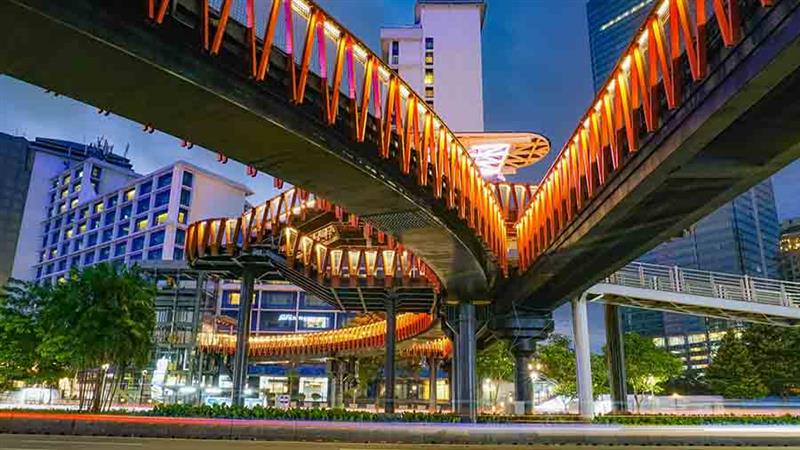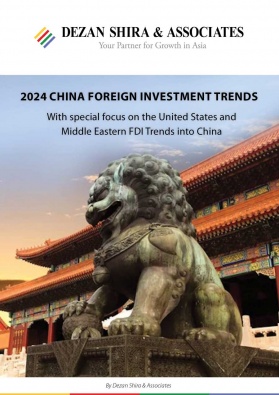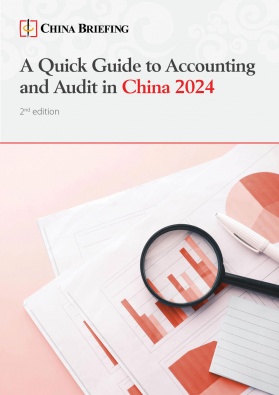Highlights from China FM Wang Yi’s Visit to New Zealand and Australia (Updated)
China Foreign Minister Wang Yi’s diplomatic mission to New Zealand and Australia is an outcome of prolonged efforts on all sides to strengthen bilateral economic ties, address key differences, and explore new avenues for cooperation, with implications for regional stability in the Indo-Pacific. Wang’s visit to the two countries involved several high-level meetings and focused on boosting trade, investment, and people-to-people exchanges.
UPDATE (May 30, 2024): In a significant development, five Australian beef processing plants that had been suspended from exporting to China have had their access restored. China’s General Administration of Customs (GACC) informed the businesses that they could resume trade, with some plants authorized to export both chilled and frozen products and others restricted to frozen only.
The five reinstated facilities are:
- JBS Dinmore, Queensland (Est. No 235 – Chilled & Frozen)
- Northern Cooperative Meat Co, Casino, New South Wales (Est. No 239 – Chilled & Frozen)
- Kilcoy Global Foods, Kilcoy, Queensland (Est. No 640 – Chilled & Frozen)
- JBS Beef City, Toowoomba, Queensland (Est. No 170 – Frozen only)
- Meramist, Caboolture, Queensland (Est. No 416 – Frozen only)
Despite this progress, two plants remain suspended due to minor regulatory or documentation issues identified years ago. John Dee, Warwick, Queensland (Est No 243) has been suspended since August 2020, and Australian Country Choice, Brisbane, Queensland (Est No 1620) since October 2021. Nevertheless, collectively, the five re-admitted plants have a daily processing capacity of around 6,000 heads, marking a substantial boost for the Australian beef industry.
Between March 17 and March 21, 2024, China’s Minister of Foreign Affairs, Wang Yi, embarked on a diplomatic mission to New Zealand and Australia. The visit followed invitations from New Zealand’s Deputy Prime Minister and Foreign Minister, Winston Peters, and Australian Foreign Minister Penny Wong. Being the first visit to the region from a high-ranking Chinese official since 2017, FM Wang Yi’s journey to both countries understandably attracted considerable attention.
Wang Yi’s meetings and achievements in New Zealand
On March 18, during his meeting with Deputy PM Peters, Wang emphasized China’s commitment to deepening economic cooperation and addressing global challenges such as climate change. Both sides expressed a desire to enhance bilateral trade and investment, recognizing the importance of maintaining an open and mutually beneficial economic relationship.
The two sides also discussed building new growth engines, including infrastructure development, green transition, digital economy, technological innovation, and climate response strategies.
Efforts were pledged to improve conditions for personnel exchanges, celebrate the 10th anniversary of the comprehensive strategic partnership between China and New Zealand, and deepen people-to-people and cultural exchanges, particularly in areas such as education, tourism, and youth engagement.
According to the official readout, discussions between the two leaders were characterized by “mutual respect and a willingness to address areas of difference constructively.” While human rights issues and geopolitical concerns were acknowledged, the focus remained on finding practical solutions to promote economic growth and prosperity.
On the same day, Wang also held discussions with New Zealand Prime Minister Christopher Luxon. During this meeting, both parties reiterated their commitment to enhancing cooperation in key priority areas, such as education, technological innovation, infrastructure, business environment, and export expansion. The two sides also explored potential new areas of collaboration, encompassing science and technology, green development, and innovation, alongside with their ongoing traditional areas of cooperation.
In addition to meeting with government officials, Wang held discussions with New Zealand’s Minister for Trade, Todd McClay, highlighting the importance of expanding bilateral trade and investment ties. The two sides reaffirmed their commitment to the upgraded New Zealand-China Free Trade Agreement (NZCFTA) and discussed ways to facilitate greater cooperation in areas of services trade and investment. Wang also assured that China is ready to work with New Zealand to launch negotiations on the negative list of trade in services soon.
Following the meetings with the Chinese official, Peters told the media that the discussions were very friendly. He mentioned Trade Minister McClay’s upcoming visit to China in April, followed by a possible trip by PM Luxon shortly after. However, a spokesperson for the Prime Minister clarified that, while Luxon has been invited to visit China and the Chinese leadership invited to New Zealand, nothing has been confirmed yet.
If confirmed, this would be Luxon’s first visit to China since becoming Prime Minister last October, while former Prime Minister Chris Hipkins had visited China in mid-2023.
Implications for China-New Zealand relations
China has been New Zealand’s largest trading partner since 2017. According to the Ministry of Foreign Affairs and Trade, the total two-way goods and services trade between the two nations amounted to NZ$38.67 (US$23.55 billion) for the year ending September 2023, underscoring the economic significance of their partnership.
Nevertheless, in 2023, New Zealand experienced a decline in exports to China for the first time since the signing of the comprehensive strategic partnership agreement in 2014. Goods exports, in particular, fell by NZ$1.7 billion (US$1.03 billion) from 2022 levels in the year to December 2023. Such fluctuations underline the need for both nations to address challenges and differences in their relationship.
Moreover, the broader implications of their trade relationship extend to regional dynamics in the South Pacific. New Zealand’s position as a key player in the region, coupled with China’s growing influence through initiatives like the Belt and Road Initiative, highlights the significance of their bilateral interactions for regional stability.
The recent removal of China’s remaining tariffs on New Zealand dairy products in early 2024 offers a glimmer of hope for potential improvement in trade relations this year.
Wang Yi’s meetings and achievements in Australia
Australia welcomed its most significant Chinese leadership visit in almost seven years on Wednesday, where stability was a central focus of discussions between the foreign ministers of both nations.
On March 20, 2024, Wang engaged in discussions with his Australian counterpart, Foreign Minister Penny Wong, in Canberra during the seventh iteration of the China-Australia Foreign and Strategic Dialogue.
Addressing reporters after the meeting, Wong emphasized the necessity of ongoing efforts to maintain stability in the relationship between Australia and China. She acknowledged that while significant differences persist between the two nations, they remain committed to safeguarding their mutual interests. Wong stated, “Australia will always be Australia, and China will always be China. Nevertheless, we will collaborate where possible and respectfully disagree where necessary, managing these differences with prudence.”
Wong also highlighted plans for expanded dialogue in crucial areas such as the Pacific region, climate change, and energy cooperation in future discussions. She emphasized the importance of nurturing the bilateral relationship for mutual prosperity, stating, “A stable relationship between Australia and China doesn’t simply materialize; it requires continual effort, and this meeting is part of that ongoing process.”
According to a statement from the Chinese foreign ministry, Wang expressed his hope for Australia to uphold the principles of the market economy and ensure a non-discriminatory business environment for Chinese enterprises operating within the country. Canberra has implemented screening mechanisms for foreign investment in critical sectors, including critical minerals, citing national security concerns, and has intervened in certain Chinese deals.
On the same day, Wang also met with Australian Prime Minister Anthony Albanese. During the meeting, both sides emphasized the positive trajectory of bilateral relations in recent years, with a focus on trade, investment, and people-to-people exchanges.
Albanese expressed Australia’s commitment to deepening mutually beneficial cooperation with China across various fields, emphasizing the importance of seeking common interests despite differences. He also pledged continued efforts by the Labor Party government to foster constructive relations with China.
Wang also met with the Premier of New South Wales of Australia Christopher John Minns and Australian Opposition Leader Peter Dutton.
In addition to his meetings with political leaders, Wang engaged in discussions with prominent figures from the business, academic, and think tank sectors. This included private discussions with representatives from a diverse range of stakeholders, including 11 businesses, universities, and think tanks.
David Olsson, the national president of the Australia China Business Council, remarked that the dialogue encompassed a wide range of perspectives from the Australian side, reflecting ongoing discussions within Australia regarding the future trajectory of the bilateral relationship. Simon Trott, the iron ore chief of Rio Tinto, emphasized the significance of China as Australia’s largest iron ore customer and noted that the continued stabilization of relations has fostered increasingly positive exchanges between government officials and business leaders from both nations.
Experts have noted the economic interdependence between the two nations, with China’s demand for raw materials playing a significant role in driving Australia’s economic growth. Australian exports such as iron ore and liquefied natural gas have been instrumental in supporting China’s economic expansion.
With reference to the ongoing trade tariffs imposed on Australia, Wang’s visit to Australia didn’t quite meet expectations, as the discussions seemed to lack significant progress. While meeting with government officials, Wang reiterated the usual diplomatic messages about enhancing cooperation and managing differences, while also cautioning against external interference. However, there was a noticeable absence of any announcement regarding tariff reductions on Australian exports such as beef and lobster.
The lack of a concrete agreement on tariffs is indeed regrettable, especially considering the potential benefits it could have brought to Australian exporters. Nevertheless, there remains optimism that China will eventually address these tariffs, especially in anticipation of Chinese Premier Li Qiang’s expected visit to Australia later in the year.
Thus, despite this temporary setback, there’s hope that a resolution will be reached in future diplomatic engagements.
Implications for China-Australia relations
China has emerged as Australia’s foremost trading partner, constituting a substantial portion of its global goods and services trade. In the fiscal year 2022-23, trade between the two nations surged by 12 percent, reaching a remarkable US$316.9 billion. Australian exports to China saw robust expansion, totaling US$203.5 billion, with notable growth in service exports, particularly driven by the resurgence of tourists and students.
Additionally, Chinese investment in Australia has played a vital role in diversifying sectors beyond mining, encompassing infrastructure, services, and agriculture. This bilateral investment flow not only bolsters economic ties but also signifies the mutual trust and confidence between the two nations. However, alongside economic opportunities, there exist potential risks and challenges, exemplified by fluctuations in trade policies and regulatory frameworks. While the removal of certain Chinese trade barriers, such as those impacting Australian wine, indicates progress, it also demonstrates the vulnerability of specific sectors to geopolitical tensions.
In this context, diplomatic dialogues such as the China-Australia Foreign and Strategic Dialogue play a crucial role in navigating complexities, fostering understanding, and charting a path toward enhanced cooperation.
Key takeaways
China’s foreign minister’s diplomatic mission to New Zealand and Australia symbolizes a concerted effort on the part of Beijing to strengthen its economic and strategic ties with the region, and address key geopolitical grievances.
Both New Zealand and Australia have robust economic relationships with China, evident in the substantial bilateral trade volumes and investments. Despite challenges such as fluctuating trade policies, there exists a mutual recognition of the benefits of economic interdependence, underlining the importance of continued diplomatic engagements and high-level dialogues.
This article was first published on March 22, 2024, and last updated on May 30, 2024.
About Us
China Briefing is one of five regional Asia Briefing publications, supported by Dezan Shira & Associates. For a complimentary subscription to China Briefing’s content products, please click here.
Dezan Shira & Associates assists foreign investors into China and has done so since 1992 through offices in Beijing, Tianjin, Dalian, Qingdao, Shanghai, Hangzhou, Ningbo, Suzhou, Guangzhou, Haikou, Zhongshan, Shenzhen, and Hong Kong. We also have offices in Vietnam, Indonesia, Singapore, United States, Germany, Italy, India, and Dubai (UAE) and partner firms assisting foreign investors in The Philippines, Malaysia, Thailand, Bangladesh, and Australia. For assistance in China, please contact the firm at china@dezshira.com or visit our website at www.dezshira.com.
- Previous Article US Tariff Increases on Chinese Imports – Implications for Trade and Businesses
- Next Article China Releases New Draft Regulations on Generative AI


























